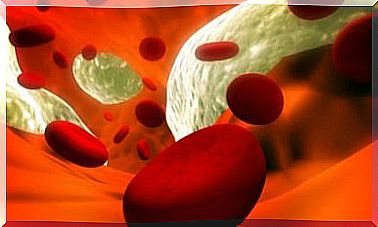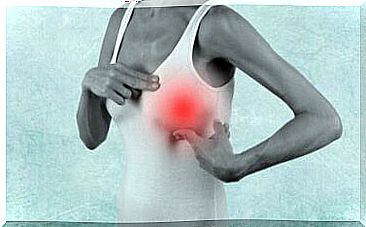The Role Of Zinc In Strengthening The Immune System
The role of zinc in the functions of the immune system has been studied in recent years. Its consumption is therefore currently recommended to improve the body’s reaction to infectious agents.

Zinc is one of the essential minerals that help strengthen the immune system. In general, it is essential to ensure a correct diet so that the body can respond to infectious agents. What is the role of zinc?
In this regard, a study published in the journal Nutrients emphasizes that vitamins (such as vitamins A, B6, B12, C, D and E) as well as minerals (selenium, magnesium, iron, zinc and copper) complete the action of the immune system.
Insufficient consumption of these nutrients is common and leads to a higher incidence of infections and their respective consequences. In this particular case, we will see what is the role of zinc and how to optimize its ingestion.
The role of zinc in strengthening the immune system
First, acute respiratory infections, such as seasonal influenza epidemics as well as the recent COVID-19 pandemic, are a common cause of morbidity and mortality around the world.
The World Health Organization estimates that seasonal influenza causes between 3 and 5 million serious illnesses that require hospitalization and result in high death rates worldwide.
Although hygiene measures and vaccinations are effective tools to protect against these infections, not all diseases of this type have a vaccine. A vaccine does take a long time to develop and it can take years before it is approved for use.
Therefore, additional strategies are needed to address infectious epidemics. One of them is the use of immuno-nutrients that help strengthen the immune system. On this occasion, we will discuss the role of zinc, its mechanisms of action as well as its various food sources.

Zinc: main characteristics
The role of zinc in the functioning of the immune system has been known for many years. Indeed, the discovery of zinc-dependent thymulin, involved in the development of T lymphocytes, has been known for four decades.
In addition, this trace element is an integral part of more than 3000 proteins which play the role of enzymes and transcription factors involved in cell signaling pathways and the processes of DNA repair and replication.
Mechanisms of Immune Action of Zinc
Of the multiple functions in signal transduction and cell proliferation that this mineral exerts, it is not surprising that it plays a critical role in immune functioning.
According to the article published in the journal Metabollomics , the role of zinc is necessary for the maturation and maintenance of T cell balance. For example, zinc deficiency has been observed to lead to a decline in immunity to Th1 lymphocyte mediation and promotes inflammatory reactions (characterized by the secretion of interleukin 1B).
Food sources of zinc
As we have already mentioned, the role of zinc in strengthening the immune system has been studied several times. Although this mineral can be consumed as a sole supplement or as a multivitamin, it is ideal to consume it naturally, through food.
The main sources of zinc are:
- Oysters which provide 76 mg per 85 g serving
- Fortified cereals because they provide 15 mg per 30 g serving
- Beef which contains 6.2 mg for every 100 g
- Chicken which provides 2.7 mg for each 100 g portion
- Pork whose intake is 2.9 mg for each 100 g
- Seafood is also a source of zinc. For example, clams provide 21g for every 100g. While sardines provide 3 mg per 100 g
- Finally, legumes are a small but important source. They contain 1.8 mg of zinc per 170 g serving

The role of zinc and its supplementation
Establishing nutritional recommendations to cover micronutrient intake is necessary. First of all, the consumption of supplements must be approved by authorities such as the European Food Safety Authority.
More specifically and, to support the optimal functioning of the immune system, it is recommended to ingest between 8 and 11 mg of zinc per day. Finally, it is necessary to remember the importance of consuming foods of animal origin as the main source of zinc.
The importance of a correct diet
Finally, it is essential to insist on having a healthy and varied diet in order to obtain all the vitamins and minerals necessary for the proper functioning of the body. Indeed, it has already been observed deficiencies in several micronutrients in overweight or obese people.
According to an article published in Endocrine, Metabolic & Immune Disorders , one of the reasons that nutritional status is reduced in overweight individuals is the consumption of processed foods. These actually contain too much trans fat and simple sugars.
In addition, these foods not only promote weight gain, but are also low in vitamins and minerals. Therefore, their consumption increases the likelihood of contracting infectious diseases.
This is why it is essential to remember the role of zinc and other nutrients in strengthening the immune system and supporting its function. Accompanied by basic hygiene measures, this action will help the body to prepare for possible infectious agents.









